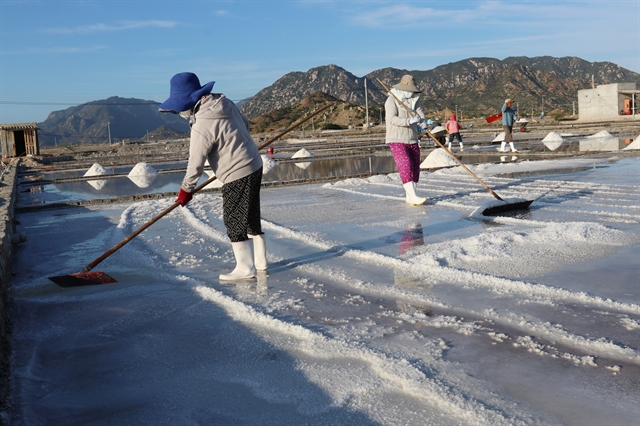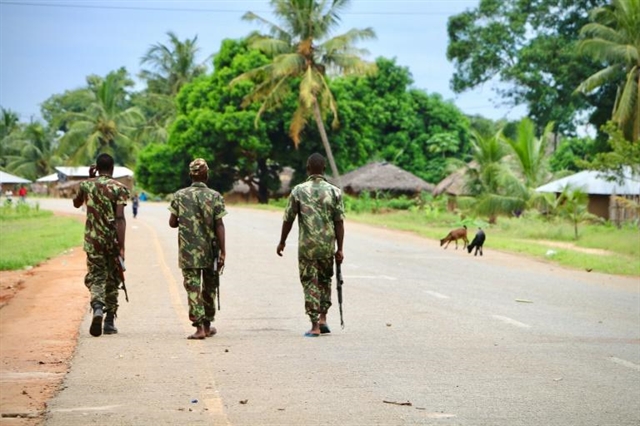 World
World


|
| Soldiers from the Mozambican army patrol the streets after security in the area was increased, following a two-day attack from suspected Islamists in Mocimboa da Praia. — AFP/VNA Photo |
HARARE — Botswana, Zambia and Zimbabwe on Tuesday called on Southern African countries to help Mozambique fend off an escalating jihadist insurgency in a remote northern region of the country.
Meeting in Harare, the presidents of the three nations condemned the "armed attacks and acts of sabotage perpetrated by the terrorists and armed groups".
A shadowy Islamist group has terrorised remote communities in Mozambique's Muslim-majority north since 2017, killing more than 1,100 people, according to the Armed Conflict Location & Event Data Project (ACLED).
The jihadists have grown bolder over the past two months, stepping up attacks and venturing into towns as part of a declared campaign to establish an Islamist caliphate.
In a statement, the heads of state urged members of the Southern African Development Community (SADC) to support the Mozambique government.
Zimbabwean President Emmerson Mnangagwa urged the region to "stand shoulder-to-shoulder" and join forces against the jihadists killing scores of civilians and destroying private and state property.
The terrorist threat had "assumed greater proportions" in the past decade and was now "becoming increasingly complex", he said.
The Mozambican army and police – recently supported by private military companies in the region – have failed to bring order to the gas-rich area.
Last week, Zimbabwe's defence minister denied rumours that Zimbabwean soldiers had been deployed in Mozambique to help fight the jihadists.
"The deployment allegations are not only outright falsehoods but malicious," said Defence Minister Oppah Muchinguri-Kashiri.
The unrest has forced some 200,000 people to flee their homes and stoked concern among energy giants operating in the region. — AFP




